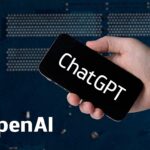
Over the past year and a half as the capabilities of ChatGPT have thrust artificial intelligence to the forefront of public discourse, new sets of skills have emerged.
It’s become increasingly clear that although ChatGPT and similar Large Language Models (LLMs) can do amazing, paradigm-shifting things, the specific prompts that you type in have a massive impact on the quality of the output you receive.
Thus, the key skill for our new AI reality has been dubbed “Prompt Engineering,” which OpenAI defines as “strategies and tactics for getting better results from large language models.”
At its core, this skill requires users to cleverly frame their questions, select the most effective words and phrases, and pivot to new strategies when results aren’t what they expected.
In short, prompt engineering sounds an awful lot like what librarians have been doing for decades amid constant upheaval in information and search technologies.
Librarians and Prompt Engineering: Why It’s a Good Fit
Librarians in both public and academic settings teach how to choose effective keywords for a topic of interest, understand when a question needs to be narrowed or broadened, and utilize a variety of search strategies to ensure that the best results are found.
What’s more, the back-and-forth nature of ChatCPT interactions bears many similarities to the classic reference interview in which librarians probe, clarify, verify, and iteratively get to core of a problem, which often looks much different from the initial question they are asked.
Now I’m far from the first librarian to raise the idea that librarians could be ideal prompt engineers, as my professional colleagues have been making this point for months.
As one webinar presenter nicely put it, “prompt engineering is about asking the right questions or giving precise instruction to generate the most useful information, and information is our business.”
And at this stage of LLM development, it’s worth digging deeper into what exactly this librarian AI role might look like, and also what challenges or unknowns
One line of thinking is that prompt engineering might become a key duty for librarians of all types, or perhaps at least a specialized version of librarians.
A recent paper pointed out that “in terms of training the public in prompt engineering skills, no single discipline or profession currently takes the lead” and suggested the “emergence of a new role known as the ‘prompt engineering librarian,’ akin to the well-established ‘information literacy librarian’ role.”
Another librarian pointed out that in our AI future, “search engines are also a type of answer engine” and that “librarians will still be serving a very traditional role – helping to refine the question.”
The emergence of a wide variety of prompt libraries, ChatGPT “hacks,” and similar products for sale made another librarian think about “how this might change people’s perception of how to go about finding information,” and that “‘oh, you have to pay money to get the good stuff’ could easily become a norm.” While private creators reap many of the rewards of this shift towards a “monetization of information retrieval,” it could also open a door for librarians to provide similar services for their user communities. They key factor, however, will be if the public perceives librarians to be experts in AI search.
Another librarian was a bit wary of all of the hype surrounding prompt engineering and cautioned against fully jumping on the bandwagon. He pointed out that prompt engineering isn’t always effective, specifically in examples of “super long complicated prompts that were supposedly guaranteed to give you magical results.”
He also shared an experiment which found that “going back and forth with ChatGPT in a coediting or iterative manner got far better results when trying to write an essay, than those who adopted simple prompts or those who did long complicated prompts at one go.”
Thus, the potential for prompt engineering librarians may even be greater as long as they frame their work as an iterative process and also one that educates users about why certain prompts work better than others, as opposed to the model of an “expert” librarian typing in the perfect query to extract valuable data from a “black box” technology.
New AI Jobs Prioritizing Information Skills
Another line of thinking has less to do with jobs in libraries, but rather with the skillset of librarians.
A few months ago a job listing for a Prompt Engineer at an AI Safety and Research Company went viral because it was offering $250k – $375k.
If new corporate roles working with AI continue to value skills in organizing and retrieving information, it could provide new lucrative career paths for graduates of library and information science schools.
A potential concern with this idea lies on the “engineering” side: these jobs will likely involve designing and improving the Generative AI technologies instead of just picking some good words to search for.
But what better field to foster these skills than library and information science, which has taught programming and design of information retrieval systems long before Generative AI went mainstream?
And as one blog post put it, librarian skills “reach back to the early days of ‘dot command’ platforms that practically required a programming language to extract research results. Prompt Engineering sounds a lot less demanding than the technologies we mastered in the past.”
A final thought on prompt engineering is what will happen to these skills as ChatGPT and other AI technologies continue to improve and give better answers intuitively.
Will they get so good that the very concept of a search specialist becomes obsolete? And if so, will we reach that point in ten years? Five? This year?
We’ve already seen moves in this direction, such as the release of custom GPTs that have specific skills and knowledge. This complicates the notion of the prompt engineer as a human expert, but at the same time could be an avenue for libraries to pursue (for example, in the creation of a research assistant GPT that is specific to your institution and collections).




Leave a Reply